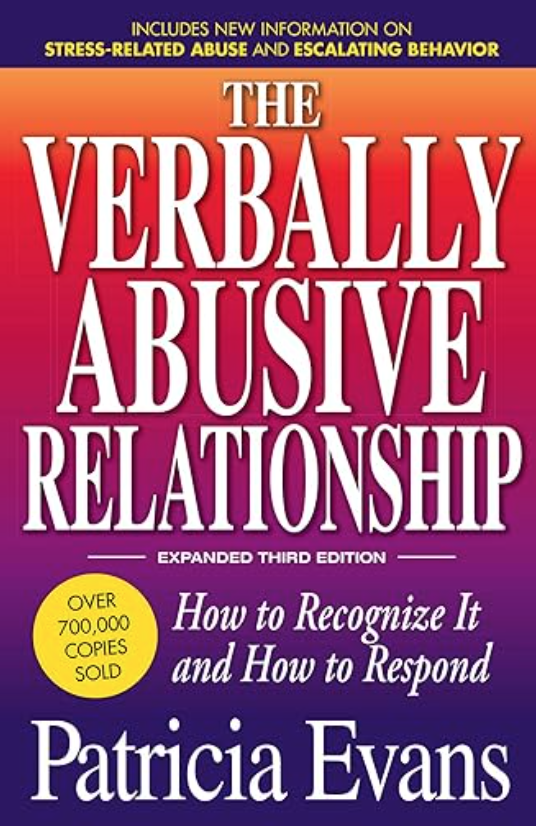Verbal abuse is a type of psychological/mental abuse that involves the use of oral language, gestured language, and written language directed to a victim. Verbal abuse can include the act of harassing, labelling, insulting, scolding, rebuking, excessive yelling towards an individual.
Wikipedia.
What is hidden emotional abuse in a relationship?
Here in this audio clip taken from a call, I made in April 2018 my then-partner gets angry with me because I have called him on the telephone. I had tried to have a conversation with him while I was driving but he had refused to talk to me. I tried again when I got back home and the response from him was not good, I turned on the record on my iPad when he started to raise his voice because another person was trying to call him while I was on the phone with him. I rediscovered the recording after September 2020 when he finally ended our relationship.
You will hear how I keep apologising and saying sorry as if it was my fault that he was angry, the reality was he was just that type of man, he got angry and raised his voice like this to, shut me down, so I would not ask questions, so that he did not have to answer anything that might make him feel uneasy about the situation he had created. This had happened on a number of occasions since he had confessed to what I thought of as an affair with another woman. In 2018 there were many situations where I ended Facetime calls because he had started yelling and shouting at me for no reason. Now I realise that was all part of “silencing me” stopping me from having any meaningful conversations.
Warning! In this recording, he uses a lot of bad language especially f-u-c-k-i-n-g
0:22 No it wasn’t your fault but this is nonsense.
0:44 When I’m saying, “You’re sending mixed messages because that’s why I’m confused”
1:02 He was throwing nearly £700 a month at me
1:25 Don’t bite the hand that feeds yer
1:35 You’re upset because you’ve made some bad decisions
1:40 You are now trying to make me feel emotionally responsible for your bad decisions
1:45 It’s my fault, I’ve made you dependent on me
2:07 No, no I can hear it in your f.u.c.k.i.n.g. voice – after I tell him I’ve never said that
2:21 You’ve had plenty of time to have conversations and you choose not to
2:51 This kind of conversation can’t work on the f.u.c.k.i.n.g phone why don’t you understand that
The real reason for his anger I suspect was because I was looking for answers about our relationship because he was carrying on a double life in the UK. He confessed to seeing another woman in December 2017. In January 2018 before he left me in Spain to return to the UK for his work, he sat me down and told me what he was going to do.
He was going to pay money into my UK business account every month, he started to pay £667 into my business account. I didn’t ask for that money he just told me what he was going to do.
So in the first part of the recording, my call to him is nonsense. I mention that I was confused because, in a previous conversation, he had told me he was throwing nearly £700 a month at me, yet he also told me that I had a lovely place to live and that I should be grateful. He brings up the fact that I was trying to earn my own income by starting an online business, and then he tries to tell me that I’m upset because I had made some bad decisions. When actually I was deeply hurt by his decision to confess his infidelity and tell me he would be meeting with another woman every time he returned to the UK.
Later in the recording, he blames me for trying to make him feel emotionally responsible for my bad decisions. As if it is his fault that I am now dependent on him. The only bit that is correct is that I was a strong powerful independent woman, running my own property management and student rentals business. He tells me I have had plenty of time to have conversations and then I choose not to, I think perhaps I was not able to have face-to-face conversations mostly because I feared outbursts like the one I recorded.
The final part of this clip from the same telephone conversation is him telling me that this type of conversation can’t work on the phone, asking why I don’t understand that. But actually, my understanding is that a telephone is for communicating and having conversations, which obviously was not going to happen as soon as he became angry.
Here are some questions that I have researched from verbalabuse.com
- He seems irritated or angry with you several times a week or more although you hadn’t meant to upset him. You are surprised each time. (He says he’s not mad when you ask him what he’s mad about, or he tells you in some way that it’s your fault.)
- When you feel hurt and try to discuss your upset feelings with him, you don’t feel as if the issue has been fully resolved, so you don’t feel happy and relieved, nor do you have a feeling that you’ve “kissed and made up”. (He says, “You’re just trying to start an argument!”, or in some other way expresses his refusal to discuss the situation.)
- You frequently feel perplexed and frustrated by his responses because you can’t get him to understand your intentions.
- You are upset not so much about concrete issues–how much time to spend with each other, where to go on vacation, etc.–as about the communication in the relationship: what he thinks you said and what you heard him say.
If you can answer yes to any of these questions you need to buy this book. The Verbally Abusive Relationship



